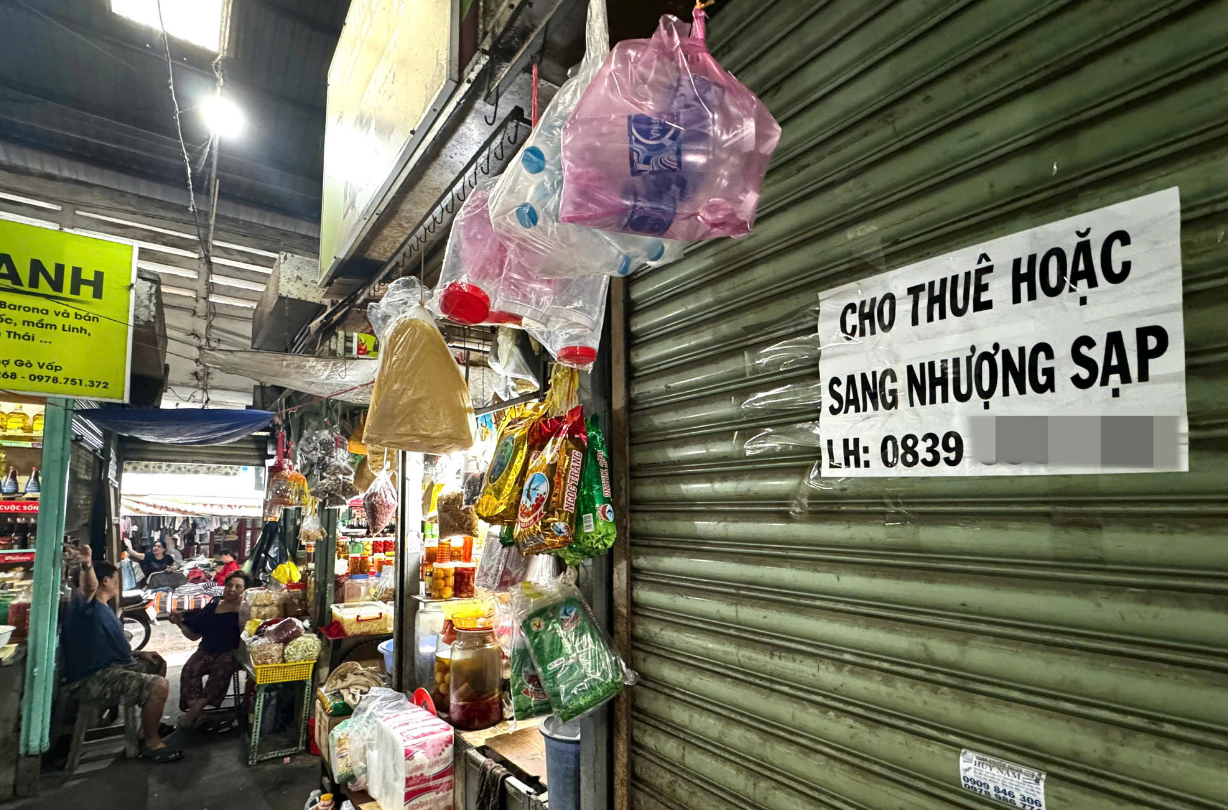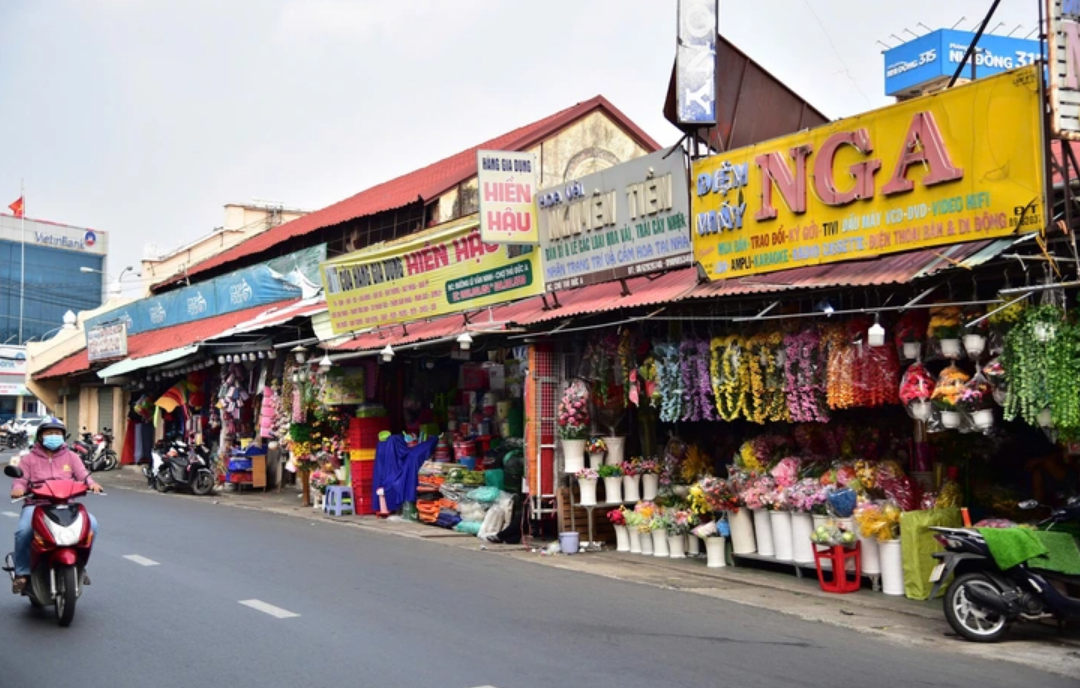As consumers are shifting to online shopping, traditional markets in Ho Chi Minh City are being forced to adapt.
The municipal Department of Industry and Trade is implementing a project to modernize wet markets, with its plan for completion by June 2025.
The goal is to make traditional markets align with contemporary trends and bring about positive changes for small vendors.
Struggling vendors
After the 2025 Lunar New Year holiday, traditional markets in the southern metropolis have continued to experience sluggish sales, with many vendors leaving.
Even at Tan Dinh Market, located in District 1 and once considered one of the most bustling markets in the city, foot traffic has been sparse.
Luong Thi Lan, who sells jewelry and cosmetics at Tan Dinh Market, shared that she is only operating half a day.
“I can’t bring myself to close completely, but business is slow. Foreign customers’ purchases have dropped 50 percent, while many come just to browse," Lan said.
“I still have to pay taxes, though. I close up in the afternoon to focus on other work for extra income.
“I once contacted a famous person to help sell, but the commission was 20 percent. That’s too high.
“I know selling online is the trend, but it’s not that simple."
T.K.X., a former fish vendor at Tan Dinh Market, who is now selling fruits on the sidewalk outside the market, said that customers have switched to shopping at supermarkets and minimarts.
Facing the same fate, vendors at Ba Chieu Market in Binh Thanh District, Binh Tay Market in District 6, or An Dong and Kim Bien in District 5 are seeing a plunge in foot traffic and sales.
|
|
| A stall is put up for rent at Go Vap Market in Go Vap District, Ho Chi Minh City. This photo was taken on February 19, 2025. Photo: Be Hieu |
Declining foot traffic
Statistics from the municipal Department of Industry and Trade indicated that the city has 232 markets, including three wholesale markets.
Since the end of the COVID-19 pandemic, some 60-80 percent of the vendors at these markets have resumed operations.
The number of market-goers has decreased 20-30 percent compared to pre-COVID-19 levels and 30-50 percent from 2019.
Inadequate support
In May 2024, Ho Chi Minh City launched a pilot project for online sales at traditional markets, starting with Ben Thanh Market.
Under the initiative, vendors were assisted in shifting to online platforms through training courses. Yet, some vendors remain skeptical.
Tran Quynh Nhu, deputy head of the trade management division at the municipal department, said that the model might not work for all vendors.
“Not every market is ready for online sales, and not every vendor can adapt. This is not a long-term solution,” she said.
High commissions of up to 20 percent charged by key opinion leaders (KOLs) and influencers have made the model unsustainable for many small-scale vendors.
Le Minh Hiep, deputy manager of Ben Thanh Market, also noted that the project’s benefits have been minimal.
“The support provided for vendors to engage with online platforms has had limited impact. It might have worked for a few days, but then vendors just stopped using it,” he explained.
A representative from the department pointed out that the causes of declining market performance lie in outdated infrastructure, lack of investment due to regulatory obstacles, and changes in consumer behavior.
“Traditional markets face fierce competition from supermarkets, online retail, and other alternatives. The slow pace of modernization among vendors is also a contributing factor,” said the representative.
|
|
| Thu Duc Market in Thu Duc City, Ho Chi Minh City sees a few market-goers, February 19, 2025. Photo: Tri Duc |
Combining online and walk-in sales
The traditional bricks-and-mortar business model of markets is no longer suitable, said Dr. Nguyen Huu Huan at the University of Economics Ho Chi Minh City.
Vendors should combine online and offline sales, transform their stalls into delivery and pick-up points, and learn how to market products on ecommerce platforms like Facebook, Zalo, and TikTok to adapt to changing consumer behaviors, he said.
Huan emphasized that the majority of consumers now prefer shopping from home to visiting markets.
He suggested that markets should be restructured into modern shopping centers to remain competitive.
Future plans for traditional markets
Ho Chi Minh City plans to overhaul its traditional markets in an effort to make them more attractive.
The Department of Industry and Trade is working with the University of Economics and Law on a research project designed to adapt the city's market system to potential disease outbreaks and the digital economy.
The city plans to reduce the number of markets from 232 to 195 by closing, merging, or repurposing 37 of them.
Investments will focus on upgrading market infrastructure and enhancing supporting facilities such as sanitation, traffic flow, and parking.
Like us on Facebook or follow us on X to get the latest news about Vietnam!




















































